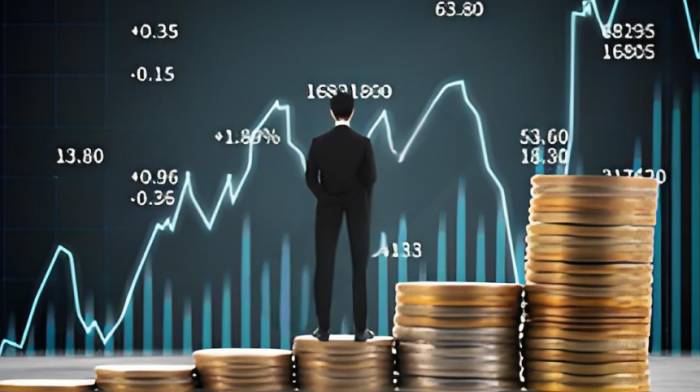Bank of Japan's December Meeting: Interest Rate Hike
The anticipation surrounding the Bank of Japan's (BOJ) interest rate decision for December is palpable, with many analysts weighing in on Governor Kazuo Ueda's next moves. As the economic landscape shifts both locally and abroad, Ueda seems poised to make announcements during the upcoming monetary policy meeting on December 19. Despite pressures, Ueda is expected to adopt a cautious approach, opting to analyze forthcoming economic data while observing the Federal Reserve's decisions, which are slated to be released mere hours before the BOJ meeting.
Market forecasts have been heating up regarding a potential rate hike in December, as Japan's economy shows signs of resilience. Notably, sustained inflation rates and a revival in corporate investment indicate a progressing economy bouncing back towards a productive wage-price cycle, which many fear had begun to decay over decades of stagnation. Ueda affirmed in a recent interview that if the economy evolves as predicted, the likelihood of a rate increase becomes palpable, emphasizing that the proper timing for any shift in policy is approaching.
Advertisement
In recent months, a significant number of economists have been bullish on the notion that the Bank of Japan could raise rates before the onset of January next year. Notably, Ko Nakayama, Chief Economist at Okayama Securities, echoed this sentiment, asserting that there is growing evidence supporting a December hike. He stated, “The next interest rate increase will most likely occur in December. The BOJ has indicated that if the economy develops according to its forecasts, then an increase will follow.” This impression feeds into a prevailing sentiment among market participants, many of whom are convinced that no firm decision has been taken by Ueda.
Analysts predict that the decision will reflect a careful balancing act as Ueda weighs all available options while remaining vigilant about upcoming economic data. The focus extends beyond domestic concerns to the international arena, particularly the implications of the Federal Reserve's interest rate policies on Japan's economy. Given that decisions made by the U.S. central bank can have far-reaching effects, Ueda's timing is critical as he seeks to provide stability amidst changing economic currents.
Contrary to the optimistic forecasts from others, Naomi Muguruma, a seasoned observer of the BOJ, posits that Ueda's willingness to engage in discussions could indicate a readiness to support a rate hike if he believes that conditions warrant it. Muguruma points to Ueda's choice to participate in an interview as a sign of preparing the ground for substantive talks leading to the December meeting, which is significant given that the BOJ only conducts a few critical interviews each year.
However, the political backdrop complicates matters further. With Prime Minister Shinzo Abe facing diminishing support due to losing a governing majority, any move by the BOJ leading to an increase could be perceived as politically charged. Economists Ryutaro Kono and Hiroshi Shiraishi from BNP Paribas have ventured an opinion that the current political instability might force the central bank to delay a rate hike until January. They expressed concern that if the government struggles to communicate effectively, this could hinder decisive monetary policy actions.
Reflecting on Japan's history of rate adjustments, should a December hike occur, it would mark the first time since 1989 that the BOJ has raised rates three times in a year. Back in 1989, a similar decision was made just before Christmas, leading to a dramatic rise in the Nikkei 225 index, which soared to historic heights just days later. Fast forward to today, and the economic landscape is starkly altered. Japan is no longer positioned as a leading global economic powerhouse; instead, it faces the unique challenges of an aging population aiming to restore inflation and invigorate economic activity post-decade-long stagnation.

Governor Ueda's plans to transition Japan's monetary policy are ambitious, reflecting years of low-interest rates and unprecedented levels of quantitative easing. Since taking office in April 2023, Ueda concluded an expansive program of monetary stimulus that had been in place for years, signaling a key shift towards increased policy normalization. His decision to raise rates for the first time in 17 years marked 2024 as a potentially transformative year for Japan's economic policy. Should the BOJ increase the policy rate from 0.25% to 0.5%, it would reach its highest level since 2008—a significant step, even if it remains meager compared to other global central banks' rates.
The road towards normalizing interest rates has not been without challenges. Ueda faced backlash following the BOJ's second rate hike in July, which triggered a turmoil in the stock market, leading to a record drop in the Nikkei index in early August. Nevertheless, market stability returned after the initial shock, showcasing the resilience of Japan's financial systems. Ueda’s ability to navigate this treacherous terrain while considering international pressures may dictate not just the fate of the BOJ's monetary policy but also the longer-term economic outlook for Japan.
As December approaches, the lines have been drawn in the sand. The stakes for Ueda are high—not merely in regards to the BOJ's policy direction but also for Japan's broader economic future, as the central bank's actions resonate beyond immediate financial markets. An eventual decision to raise rates could well mark a pivotal turn for the nation, ideally leading to renewed growth, inflation, and a strengthened economy that has been searching for stability after years of upheaval. As analysts and market participants alike await Ueda's verdict, one thing remains certain: the economic landscape is evolving, and remaining flexible and keenly attuned to global developments will be key for Japan's economic prosperity.